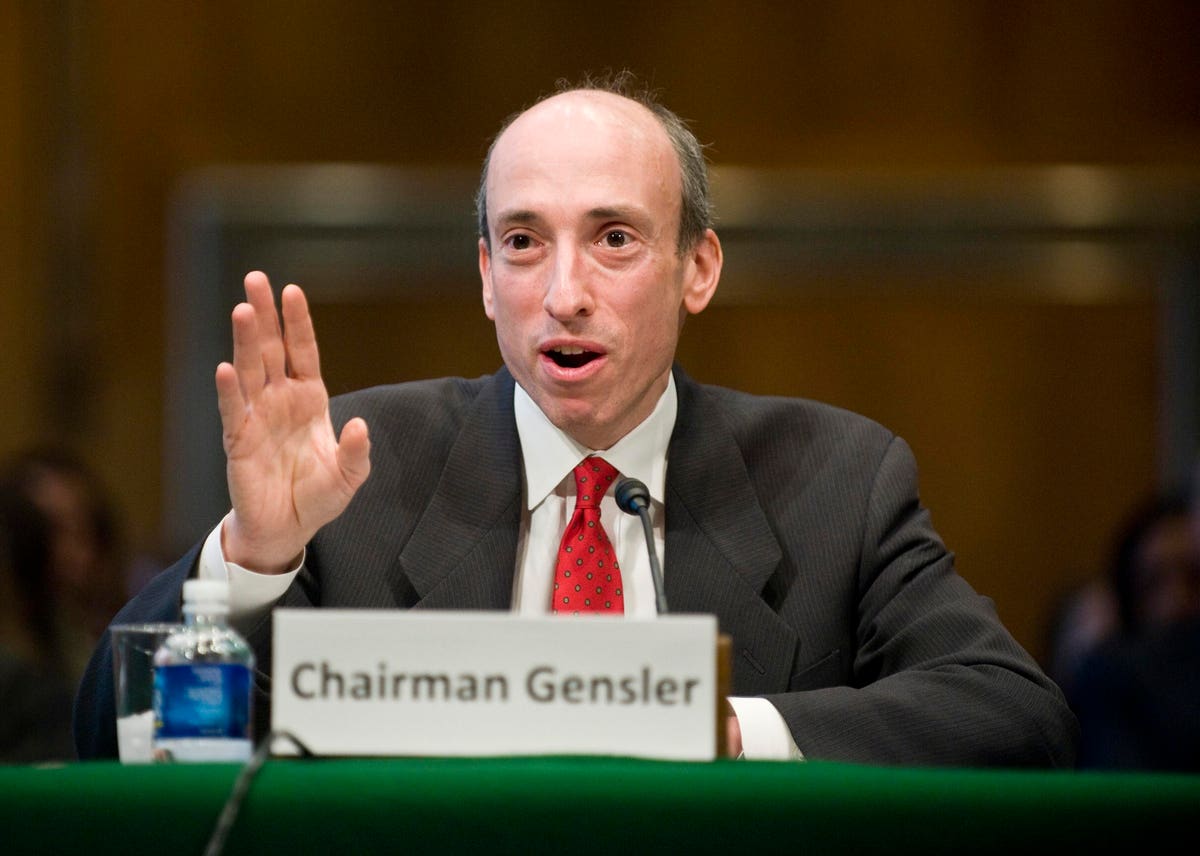There is a lot going on with regards to digital assets this week. The future of digital assets seems uncertain to some commentators due to legal actions taken by the Securities and Exchange Commission (“SEC”) against two leading crypto exchanges: Binance and Coinbase
COIN
SEC Chairman Gary Gensler gave important remarks today before the Piper Sandler Global Exchange & Fintech Conference, stating that: “When crypto asset market participants go on Twitter or TV and say they lacked “fair notice” that their conduct could be illegal, don’t believe it. They may have made a calculated economic decision to take the risk of enforcement as the cost of doing business.”
These remarks were made after the SEC took aim earlier this week at these crypto platforms as part of its ongoing crackdown on the industry. There is an ongoing attempt to regulate a rapidly growing industry that has repeatedly called for regulatory clarity.
The Crackdown on Crypto
In a 136-page complaint, the SEC announced a sweeping lawsuit against Binance on Monday, accusing Binance staff, including founder Changpeng Zhao, of mishandling client funds, as well as lying to both regulators and investors about its operations. The SEC also accused Binance, which is currently the world’s largest crypto asset trading platform, of operating in violation of a multitude of securities laws.
The following day, the SEC charged Coinbase with operating a crypto asset trading platform as an unregistered national securities exchange, broker, and clearing agency. In a 101-page complaint, the SEC also charged Coinbase, which is currently the largest crypto asset trading platform in the US, for failing to register the offer and sale of its crypto asset staking-as-a-service program.
The Charges Against Binance
As part of the case, the SEC has brought 13 charges forward, covered by four distinct areas. The first alleges that Binance and its US subsidiary, Binance.US, operated as an unregistered exchange, broker, and clearing agency. According to the filing, the company earned nearly $11.6 billion in revenue from transaction fees from U.S. customers trading on their platform. The second alleges that sales of products by the firm constitute an unregistered offering and sale of crypto assets. The SEC has long asserted that they are the appropriate agency to exert jurisdiction by framing crypto related assets as securities, rather than as a currency or commodity.
The third charge alleges the firm failed to properly restrict U.S. investors from accessing Binance’s main trading platform. Binance.US was required to operate independently from Binance.com in order to comply with national security concerns exerted by the United States. The SEC now alleges that, rather than operating independently, the company and Zhao himself continued to exert substantial control over the entity.
Finally, the SEC alleges Binance’s parent companies, BAM Trading and BAM Management, misled both customers and equity investors of Binance.US over internal controls, tools to prevent manipulative trading, and on the existence and adequacy of market surveillance. They go on to allege that the primary market-making trading firm called Sigma Chain went undisclosed to US investors. Sigma Chain is owned by Changpeng Zhao.
Binance issued a statement earlier noting that they had been attempting to negotiate a settlement with regulators, accusing the SEC of refusing to provide “much-needed clarity and guidance to the digital asset industry.”
The Charges Against Coinbase
The charges against Coinbase are quite different in nature. I tend to agree with Matt Levine that the suit against Coinbase is “very dry and focused entirely on the fact that Coinbase did not register as a securities exchange.”
Let’s not forget that Coinbase is at least somewhat trying to be transparent about its operations and asking for more guidance from the SEC. Coinbase is a public US company, which is listed on Nasdaq and incorporated in Delaware. The SEC of course will be the judge of whether Coinbase successfully complies with US securities laws or not.
Just read SEC Chairman Gary Gensler’s statement from earlier today on this: “I disagree with the notion—and recent history disproves it—that crypto intermediary compliance isn’t possible. I do recognize—and, again, think it’s appropriate—that it takes work. It’s not just a matter of “paying lip service to [the] desire to comply with applicable laws” or seeking a bunch of meetings with the SEC during which you’re unwilling to make the changes needed to comply with the securities laws.”
If we compare to the Binance case, on the other hand, there is a lot of mystery surrounding the Binance operations. For example, I’m not even quite sure about where Binance is incorporated or headquartered. According to several media outlets, Binance was headquartered in the Cayman Islands. But, then, following these press reports, the Cayman Islands Monetary Authority reiterated that Binance, the Binance Group or Binance Holdings Limited are not subject to any regulatory oversight by the Authority.
If you have been following my current research projects, then you know that I am working on a large project to study the market for corporate law. For several years now, I’ve been collecting data on unicorn firm’s incorporation and headquarter choices. There is competition among states and nations with regards to selling corporate laws to firms. This competition has long been the subject of extensive legal scholarship.
To illustrate, note that in the US, states compete with each other over the business of incorporation, seeking to lure businesses to incorporate with them. Delaware is usually the preferred choice for public companies. I promise to keep you updated on my findings as soon as I publish the research results. So, what’s next?
A Long Expected Crackdown
The SEC has been moving steadily forward on a series of crackdowns in the digital asset industry over the past two years. Following the spectacular collapse of FTX, which was the main competitor to Binance, the calls for regulatory action and aggressive enforcement action under existing laws have only intensified.
Again, just read SEC Chairman Gary Gensler’s remarks: “Markets ultimately are about trust. For 90 years, that trust has relied upon compliance with the securities laws. The crypto securities markets should not be allowed to undermine the well-earned trust the public has in the capital markets. The crypto markets should not be allowed to harm investors.”
So, let’s stay tuned for more next week. Patrick McHenry (NC-10), Chairman of the United States House Financial Services Committee, scheduled a hearing titled “The Future of Digital Assets: Providing Clarity for the Digital Asset Ecosystem.” The hearing will take place on Tuesday, June 13, in order to shed light on the current regulatory landscape following these lawsuits.
Members of the cryptocurrency community are probably hoping that the hearing will address the uncertainty in the current regulatory framework and its effects on innovation, competition and the industry as a whole. I’m hoping that it will also deal with important issues concerning investor protection and market stability.
A special thank you to my amazing research fellow John Livingstone and research assistant Sharon Miller.
Read the full article here










